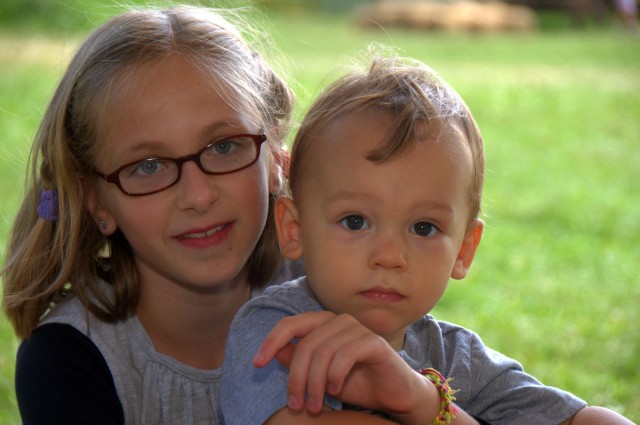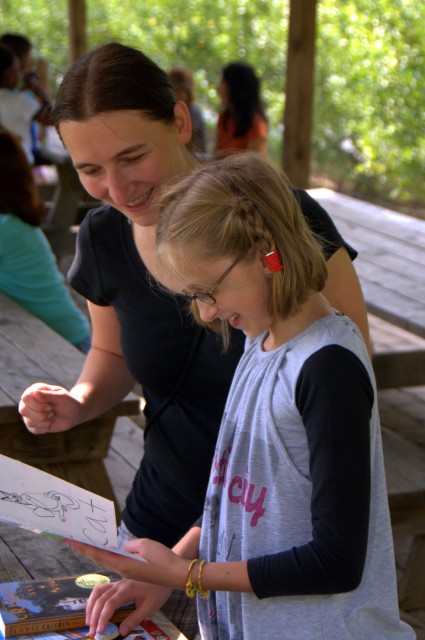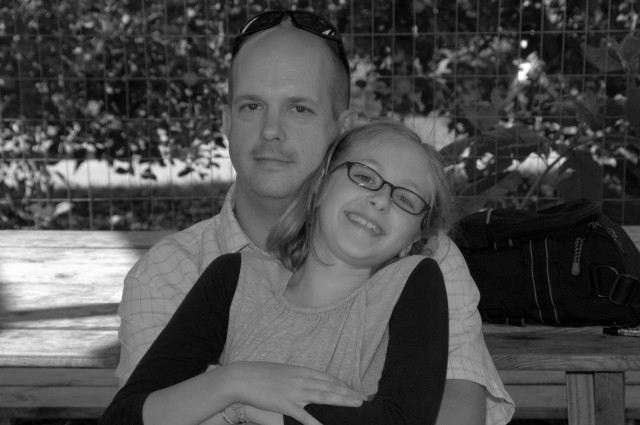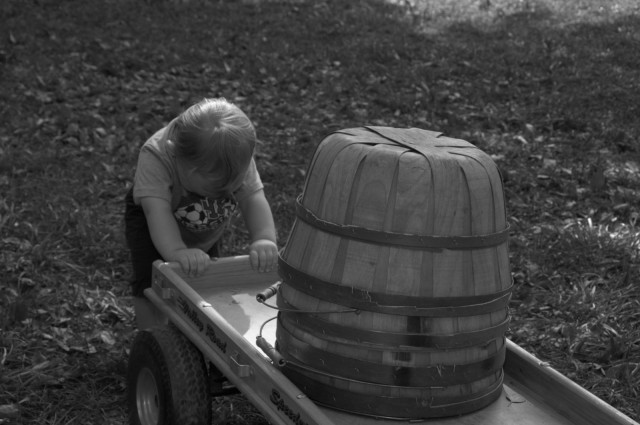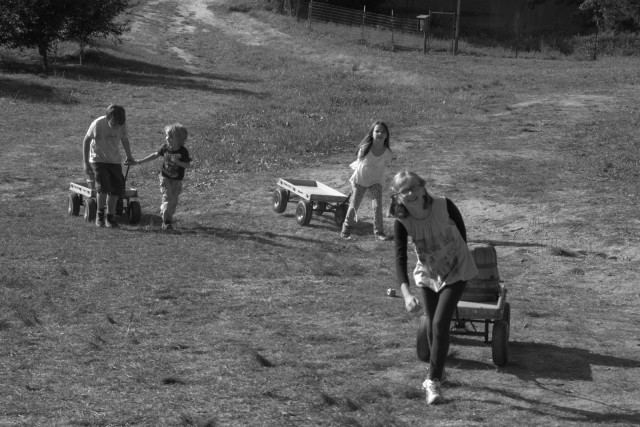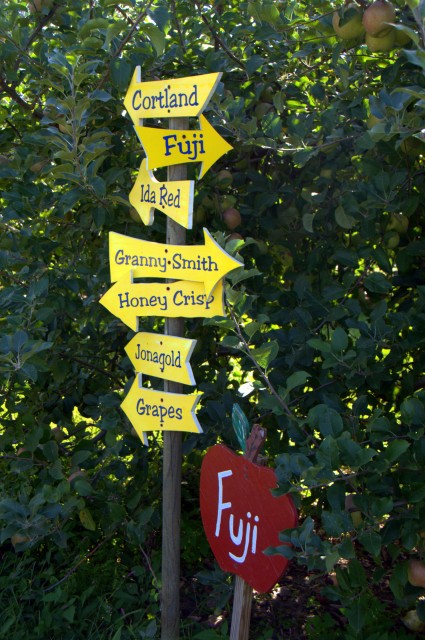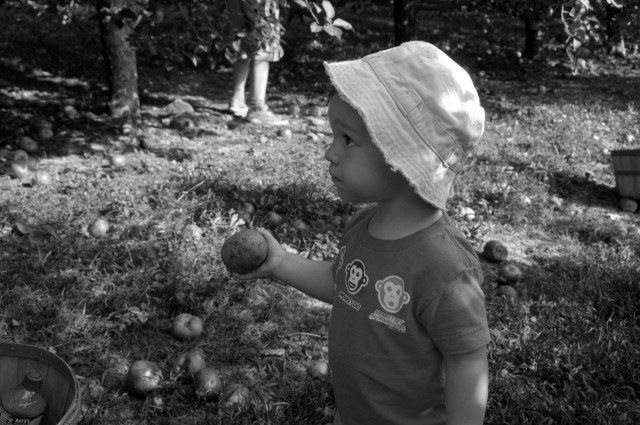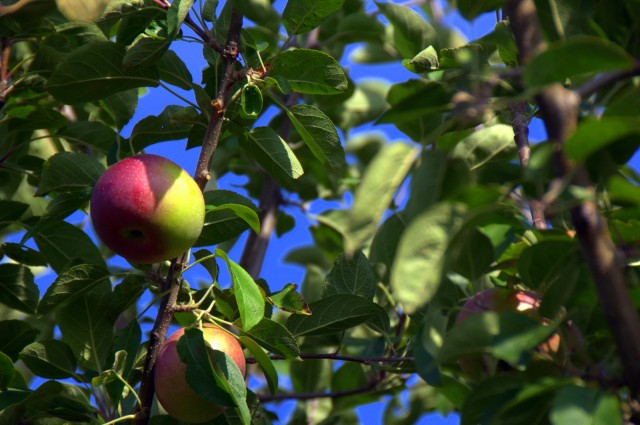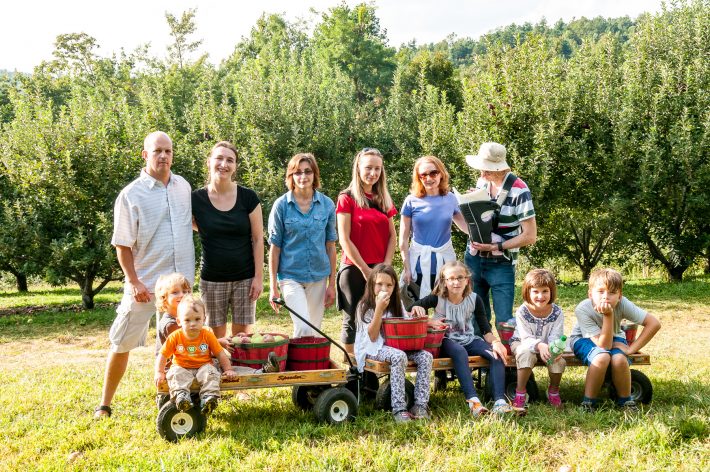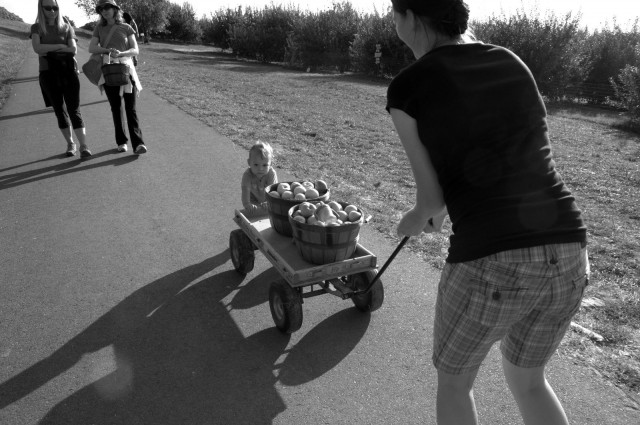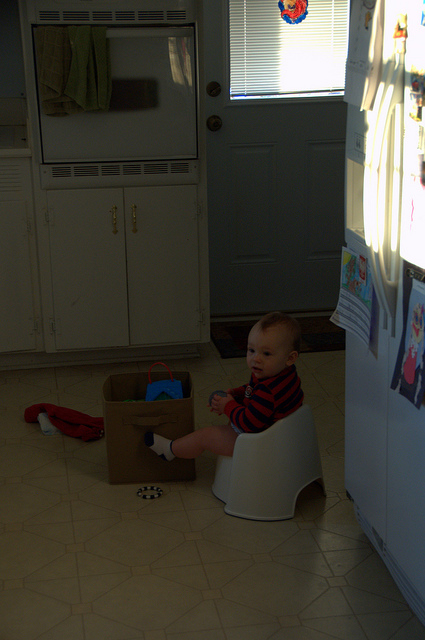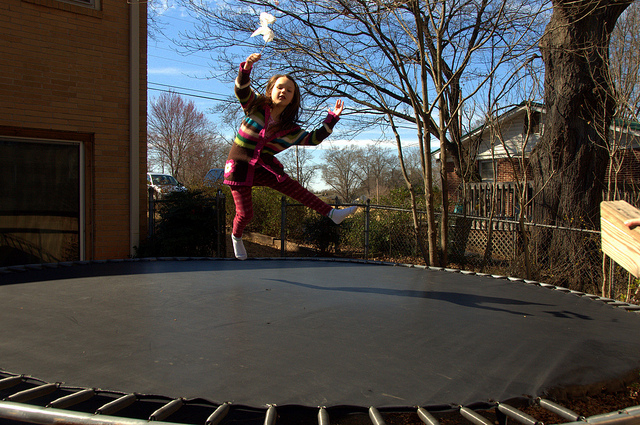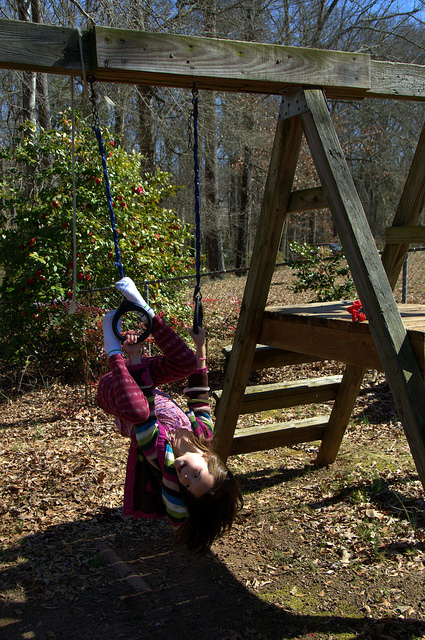Humans love rituals, and we’re no exception. You could just about tell the time of day on an average Saturday by what we’re doing. The first activity naturally is one that can’t be photographed: sleeping past six in the morning. Since K has become a stay-at-home mother, we don’t have as frantic weekday mornings as we used to, but they’re still weekday mornings, with all the unavoidable stress included, just lessened. Lunches to make, hair to brush, mouths to feed. But Saturday mornings, the only alarm clock is the Boy, which can sometimes sleep mercifully until almost eight sometimes.
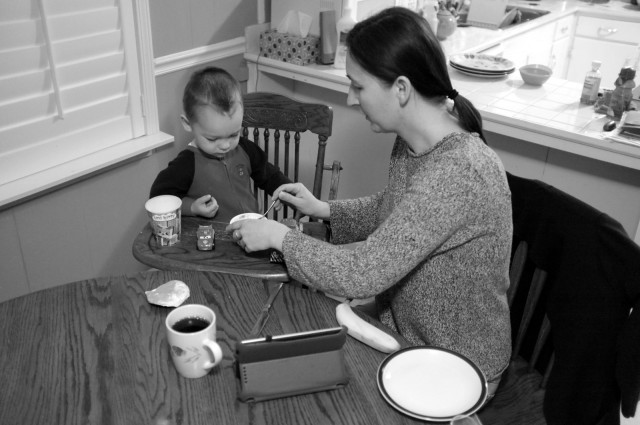
Babcia always follows sleep. Put the coffee on, get the kids eating, then call Babcia on Skype. In the past, that involved the big computer. Then the laptop. Now we even sometimes use the little seven-inch Nexus, which means E can eat breakfast and show Babcia his new toys simultaneously. Yet within that little slice of Saturday we have mini-rituals, like standing with E at the refrigerator as he decides which yogurt he wants for breakfast.
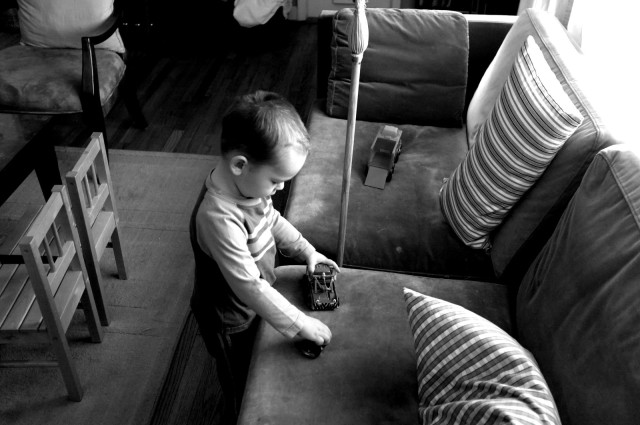
Then there’s play. The Boy, still thrilled with his new toys, plays with Mater and Lightning McQueen on a daily basis, and Saturdays are no different. Even in his play, though, his polite personality shines: his toys always ask “please” of each other and respond with “thank you” and “you’re welcome.” The Boy hasn’t yet figured out how to do Mater’s southern accent, but give him time.
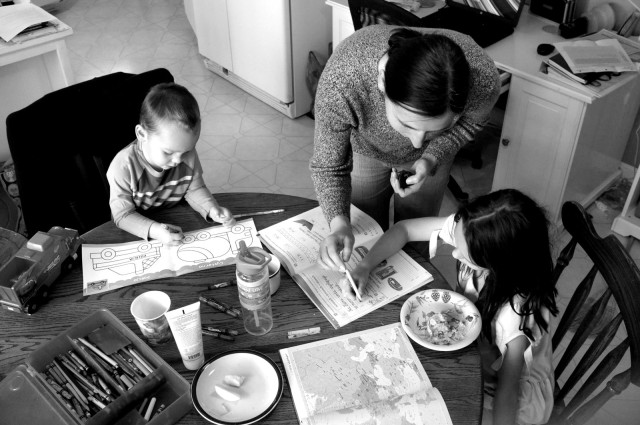
Mid-morning brings Polish lessons. Babcia has sent the Boy some coloring books, so he joins in the Polish lessons as well. He’s much more enthusiastic, but that probably has a lot to do with the difficult of his lessons compared to the Girl’s. She’s learning to read in Polish, and that’s a struggle for her. It’s not so much that the reading is difficult. She’s an excellent reader in English, and I think her frustration comes from that contrast. She often complains about doing “baby work” when K asks her to sound out a new long word.
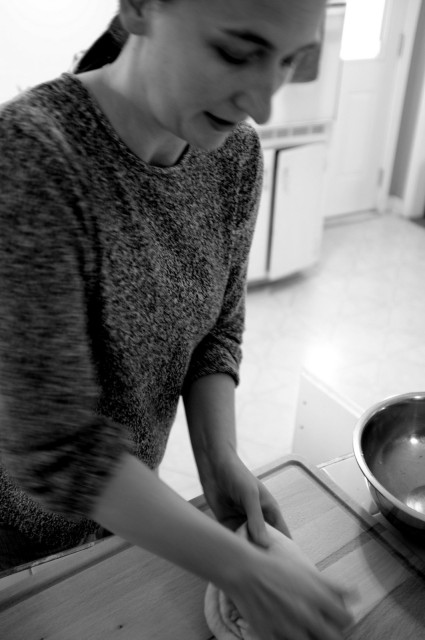
The newest Saturday morning ritual: bread. “It’s a good hobby to have,” a friend commented, and indeed it is. But like L’s view of Polish, it’s a little harder than it looks.
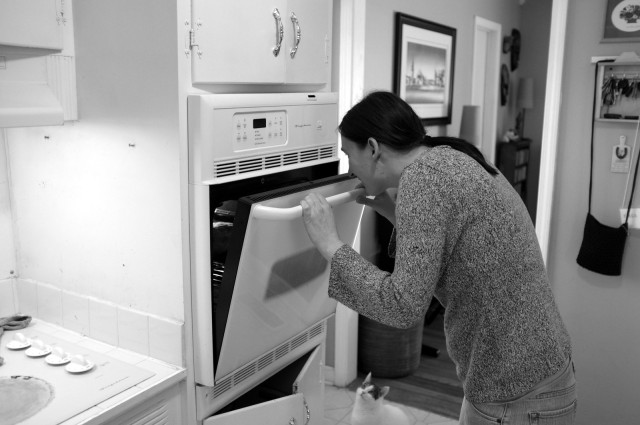
“It’s a real art,” K says every time she bakes a loaf.
